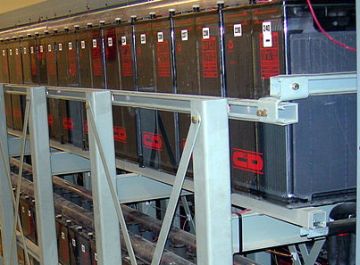 Ever had the feeling there were things afoot that were unknown to you? You’re not alone. But fear not, for the good folk of IBM have pulled a Big Blue Rabbit out of the Big Data Hat for you.
Ever had the feeling there were things afoot that were unknown to you? You’re not alone. But fear not, for the good folk of IBM have pulled a Big Blue Rabbit out of the Big Data Hat for you.
The world’s favourite international business machines have opened a new lab called the Accelerated Discovery Lab. One of the most remarkable things about it might even be its name, which – unlike so much of what goes on in the technology sector – seems related to what it does.
The lab will offer “diverse data sources, unique research capabilities for analytics such as domain models, text analytics and natural language processing capabilities derived from Watson, a powerful hardware and software infrastructure, and broad domain expertise including biology, medicine, finance, weather modeling, mathematics, computer science and information technology,” said IBM, presumably just before it passed out. Don’t forget to breath, dear.
By making it possible for organisations to take their data and mix it with these vast and disparate data sources, the Accelerated Discovery Lab will make it possible to start to identify hitherto unknown relationships among the data.
That could be to find seasonal patterns in purchasing behaviour that go beyond the obvious, such as people buy ice cream and shorts in summer. Or it could be combining social media insights with psychology data in an attempt to create meaningful customer profiling. Or it might be finding statistically robust segmentation that takes you further than ‘our target market is men in the 35-50 age bracket.’
At the moment, analysing Big Data can mean relying on a fairly manual approach to the massive amounts of data, gathered from a broad variety of channels. Whether you’re a business or a researcher, this is a testing and expensive process with precious little in the way of meaning or value waiting for you at the end.
There is obvious appeal in being able to accelerate that process.
“If we think about Big Data today, we mostly use it to find answers and correlations to ideas that are already known. Increasingly what we need to do is figure out ways to find things that aren’t known within that data,” said Jeff Welser, Director, Strategy and Program Development, IBM Research Accelerated Discovery Lab.
And to think how people laughed at Donald Rumsfeld when he said something not too dissimilar.
 Marks and Spencer said it is to head up a team of volunteers in conjunction with other companies to help local community projects on the 19th of November.
Marks and Spencer said it is to head up a team of volunteers in conjunction with other companies to help local community projects on the 19th of November.
















